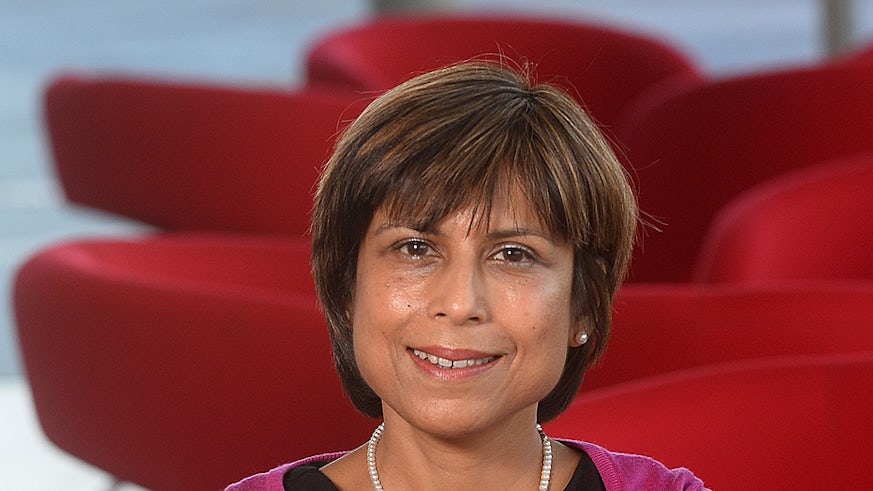Professor Anita Thapar awarded prestigious Ruane prize
19 Tachwedd 2014

Nueroscience and Mental Health Research Institute (NMHRI) Principal Investigator Professor Anita Thapar has been awarded the Ruane Prize for Outstanding Achievement in Child and Adolescent Psychiatric Research.
The Brain & Behaviour Research Foundation award the annual prize each October to an outstanding scientist carrying out research on the causes, pathophysiology, treatment, or prevention of severe child mental illness.
Recognised as a world-leading Child and Adolescent Psychiatrist Professor Thapar's research focuses on the genetic and environmental causes of Attention Deficit Hyperactivity Disorder (ADHD) and youth depression. Her findings include an observation that the increased risk of ADHD associated with maternal smoking and stress is mediated by genetics rather than environmental factors.
More recently she has developed a new strand of work looking at the role of gene environment interplay in childhood and adolescent depression which has produced a number of novel findings and a diagnostic tool that is under development.
Professor Thapar received the prize at a dinner in New York on 24th October. Professor Thapar said:
"I am really passionate about child and adolescent psychiatry research, and this award provides international recognition of the work we have done and are doing. I am grateful that I have had such a wonderful team to work with and had huge support from my family and mentors.
"We need high quality scientific evidence to inform practice and dispel stigma and blame. We can't base practice and public understanding on myths and opinions. I really hope the Ruane Prize will succeed in drawing the attention of funders and policymakers to the urgent need for continued investment in child and adolescent psychiatry research."
NMHRI's Emeritus Director, Professor Mike Owen said "Professor Thapar thoroughly deserves this award and the recognition that comes with it. Her world-leading research is helping us understand the factors that contribute to child and adolescent mental illness and I am confident that she will continue to make new discoveries and develop new tools to improve diagnosis and treatment of ADHD and depression."